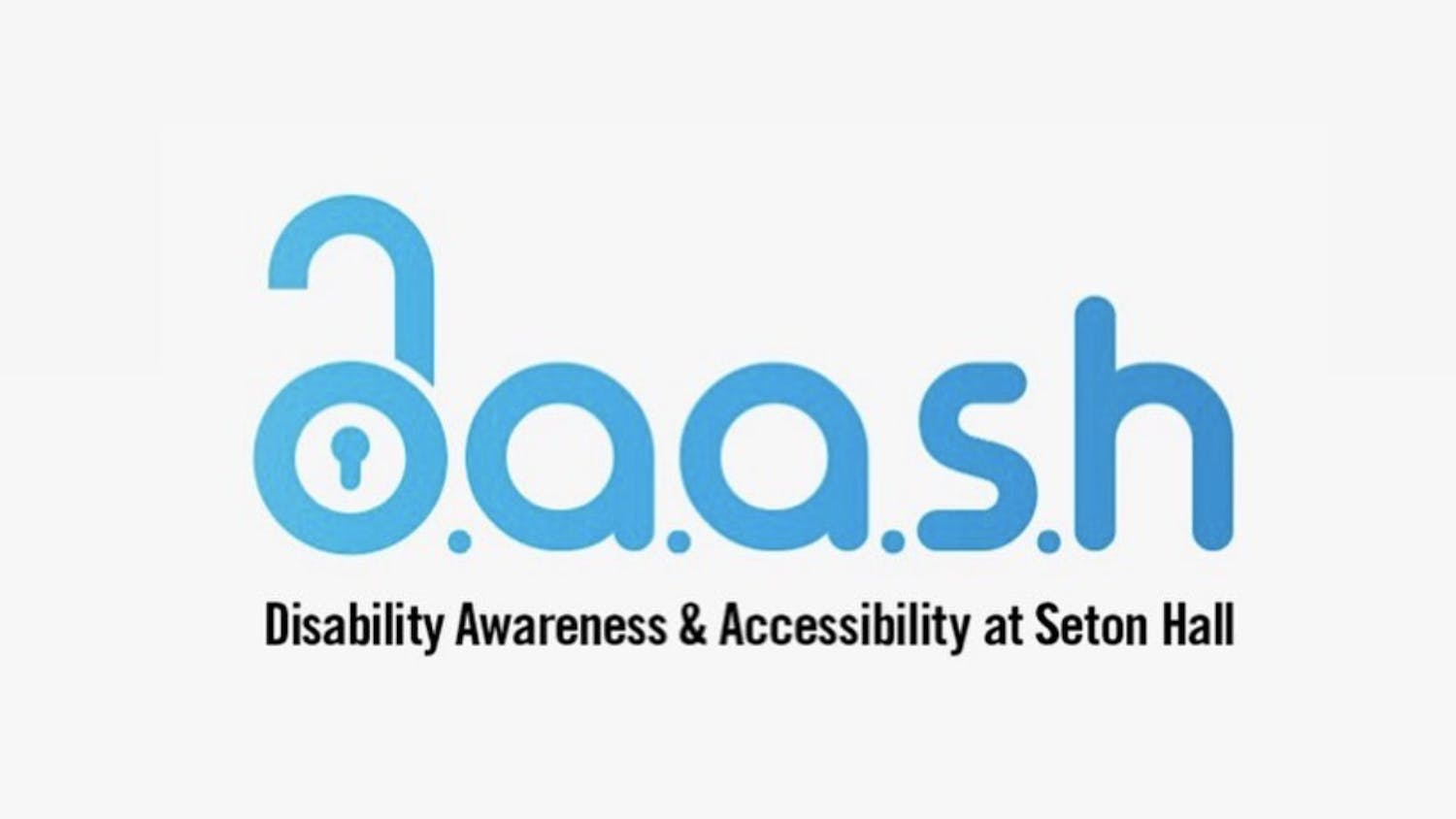[caption id="attachment_15763" align="aligncenter" width="557"] Officials say an increase in reported rapes is actually considered a ‘good sign’ because it means students are comfortable reporting crimes. Joey Khan/Photography and Digital Editor.[/caption]
The newly released Annual Security Report revealed that six rapes were reported on campus in 2015, spurring dialogue among students and leaving varying impressions on the SHU community.
Each of the six rapes were reported by females, said Associate Vice President and Dean of Students Karen Van Norman. She added that the reports involved five women with one woman reporting two different assaults.
Students are upset over these rapes on campus.
“It makes me feel disgusted that we as a Catholic university still have these crimes being committed,” said Jake Etienne, a senior education major, who is upset that rape is an issue on SHU’s campus.
Jocelyn Rogalo, a sophomore broadcasting major, is skeptical that the number six is representative of the actual problem. “There were probably a lot more rapes that were not reported,” Rogalo said.
Many students said they are left unsure of how to feel. Is six a lot? Should we be disgusted at six? Or upset that it was only six that felt comfortable enough to come forward?
Both of these reactions are natural for students to have, said Associate Dean of Student Life, Ashlee Carter, in an email interview. She pointed out that if you look at Seton Hall’s data over the past few years, six rapes can seem daunting compared to a year like 2013 when zero rapes were reported on campus. However, according to national statistics, the number is maybe much larger than six.
According to the Rape, Abuse & Incest National Network’s website, every 109 seconds an American is sexually assaulted. Among undergraduate students, the network reported 23.1 percent of females and 5.4 percent of males experience rape or sexual assault through physical force, violence or incapacitation.
Furthermore, The Washington Post and the Kaiser Family Foundation, a non-profit organization focusing on national health issues, published a June 2015 national poll which found that one in five women who went to a residential college during a four-year span said they were sexually assaulted.
Regardless of the number six, Carter said sexual assault is an issue at Seton Hall. “Seton Hall is no different from any other college or university. We are constantly trying to educate our students on tough issues such as alcohol abuse, drug use, and sexual violence. Issues that we know our students are experiencing,” Carter said.
The increase in the reported number is actually a positive sign because it means more students feel comfortable enough to come forward, Carter added.
“While six reported incidents of sexual assault is still six too many, I’m proud of the fact that students are feeling more comfortable coming forward to report,” Carter said. “I hope this continues. We are working hard to educate students on how to report, where to report, and how we can help and offer them support and services.”
Administrators at Seton Hall have been working to improve the education and awareness of these issues.
Jack Einstein, a freshman diplomacy and modern language major, said he is thankful Seton Hall is addressing these issues. Einstein spent time in high school working at the Albany County Crime Victim and Sexual Violence Center. He said he got to see first hand the impact that sexual assault has on the lives of victims. When he came to SHU he wanted an outlet where he could do similar work and he found the KNOW MORE group.
KNOW MORE is a new group under the Office of Student Life that is devoted to educating students on sexual assault and alcohol and drug abuse. This is the group’s inaugural year, but the group is geared toward creating programs that engage students in these discussions.
“It’s important students get proper education on sexual assault because of the negative light the issue is portrayed in. Victims are shamed and asked what they were wearing, similar to what happened in the Stanford Rape Case,” Einstein said. “Women are advised to fear reporting rape and I believe that is not acceptable.”
Carter said the Office of Student Life has been working extremely hard to create more messaging, such as campaigns and programs, as well as educating around the issue of sexual violence.
“We have unapologetically become more ‘in your face’ with these messages, as students are introduced to these subjects even prior to arriving on campus to begin their first year,” Carter said.
Carter specifically outlined how her office has been reaching out to students. Prior to first-year students arriving for orientation, they received an email notifying them that they needed to complete the online Campus Clarity ‘Think About It’ tutorial which educates students about sexual assault and the importance of bystander intervention.
On the day that freshmen moved into their residence halls, they were greeted by an oversized poster that educated them on The Red Zone. The Centre County Women’s Research Center’s website said that the first six weeks of college for incoming freshman is considered a “red zone” because that is when freshmen women are most likely to be raped or experience attempted rape.
During orientation, students sat through several programs that discussed sexual assault, alcohol and drug use, the importance of bystander intervention, and information on policies, services,and support on campus.
“Like I said, very in your face, but I won’t apologize for that. These are messages that students need to hear,” Carter said. “Misinformation is everywhere. We really work diligently to ensure that our students have the appropriate messaging and education because these are really tough issues. Proper education and accurate education is the only way we will be able to continue to support our students.”
For students like Einstein, these programs are a positive step in the right direction.
“This says to me that Seton Hall is invested in the lives of its students and plans to educate students so that more cases are reported and students are safer,” Einstein said.
Moving forward, Carter said the “end goal” would be to eliminate her office altogether, to no longer have a need for it.
“However, since I don’t have any magic beans, for now I’m going to keep working hard to educate Seton Hall students on the importance of these issues, to encourage them to make responsible decisions, and to offer my guidance and support,” Carter said.
“If one more student comes forward to report an incident of sexual violence because they saw the resources that are available to them from one of the posters hanging in their residence halls, then I’ll at least feel like these messages are being heard. Any progress is better than no progress,” Carter added.
Siobhan McGirl can be reached at siobhan.mcgirl@student.shu.edu.
Officials say an increase in reported rapes is actually considered a ‘good sign’ because it means students are comfortable reporting crimes. Joey Khan/Photography and Digital Editor.[/caption]
The newly released Annual Security Report revealed that six rapes were reported on campus in 2015, spurring dialogue among students and leaving varying impressions on the SHU community.
Each of the six rapes were reported by females, said Associate Vice President and Dean of Students Karen Van Norman. She added that the reports involved five women with one woman reporting two different assaults.
Students are upset over these rapes on campus.
“It makes me feel disgusted that we as a Catholic university still have these crimes being committed,” said Jake Etienne, a senior education major, who is upset that rape is an issue on SHU’s campus.
Jocelyn Rogalo, a sophomore broadcasting major, is skeptical that the number six is representative of the actual problem. “There were probably a lot more rapes that were not reported,” Rogalo said.
Many students said they are left unsure of how to feel. Is six a lot? Should we be disgusted at six? Or upset that it was only six that felt comfortable enough to come forward?
Both of these reactions are natural for students to have, said Associate Dean of Student Life, Ashlee Carter, in an email interview. She pointed out that if you look at Seton Hall’s data over the past few years, six rapes can seem daunting compared to a year like 2013 when zero rapes were reported on campus. However, according to national statistics, the number is maybe much larger than six.
According to the Rape, Abuse & Incest National Network’s website, every 109 seconds an American is sexually assaulted. Among undergraduate students, the network reported 23.1 percent of females and 5.4 percent of males experience rape or sexual assault through physical force, violence or incapacitation.
Furthermore, The Washington Post and the Kaiser Family Foundation, a non-profit organization focusing on national health issues, published a June 2015 national poll which found that one in five women who went to a residential college during a four-year span said they were sexually assaulted.
Regardless of the number six, Carter said sexual assault is an issue at Seton Hall. “Seton Hall is no different from any other college or university. We are constantly trying to educate our students on tough issues such as alcohol abuse, drug use, and sexual violence. Issues that we know our students are experiencing,” Carter said.
The increase in the reported number is actually a positive sign because it means more students feel comfortable enough to come forward, Carter added.
“While six reported incidents of sexual assault is still six too many, I’m proud of the fact that students are feeling more comfortable coming forward to report,” Carter said. “I hope this continues. We are working hard to educate students on how to report, where to report, and how we can help and offer them support and services.”
Administrators at Seton Hall have been working to improve the education and awareness of these issues.
Jack Einstein, a freshman diplomacy and modern language major, said he is thankful Seton Hall is addressing these issues. Einstein spent time in high school working at the Albany County Crime Victim and Sexual Violence Center. He said he got to see first hand the impact that sexual assault has on the lives of victims. When he came to SHU he wanted an outlet where he could do similar work and he found the KNOW MORE group.
KNOW MORE is a new group under the Office of Student Life that is devoted to educating students on sexual assault and alcohol and drug abuse. This is the group’s inaugural year, but the group is geared toward creating programs that engage students in these discussions.
“It’s important students get proper education on sexual assault because of the negative light the issue is portrayed in. Victims are shamed and asked what they were wearing, similar to what happened in the Stanford Rape Case,” Einstein said. “Women are advised to fear reporting rape and I believe that is not acceptable.”
Carter said the Office of Student Life has been working extremely hard to create more messaging, such as campaigns and programs, as well as educating around the issue of sexual violence.
“We have unapologetically become more ‘in your face’ with these messages, as students are introduced to these subjects even prior to arriving on campus to begin their first year,” Carter said.
Carter specifically outlined how her office has been reaching out to students. Prior to first-year students arriving for orientation, they received an email notifying them that they needed to complete the online Campus Clarity ‘Think About It’ tutorial which educates students about sexual assault and the importance of bystander intervention.
On the day that freshmen moved into their residence halls, they were greeted by an oversized poster that educated them on The Red Zone. The Centre County Women’s Research Center’s website said that the first six weeks of college for incoming freshman is considered a “red zone” because that is when freshmen women are most likely to be raped or experience attempted rape.
During orientation, students sat through several programs that discussed sexual assault, alcohol and drug use, the importance of bystander intervention, and information on policies, services,and support on campus.
“Like I said, very in your face, but I won’t apologize for that. These are messages that students need to hear,” Carter said. “Misinformation is everywhere. We really work diligently to ensure that our students have the appropriate messaging and education because these are really tough issues. Proper education and accurate education is the only way we will be able to continue to support our students.”
For students like Einstein, these programs are a positive step in the right direction.
“This says to me that Seton Hall is invested in the lives of its students and plans to educate students so that more cases are reported and students are safer,” Einstein said.
Moving forward, Carter said the “end goal” would be to eliminate her office altogether, to no longer have a need for it.
“However, since I don’t have any magic beans, for now I’m going to keep working hard to educate Seton Hall students on the importance of these issues, to encourage them to make responsible decisions, and to offer my guidance and support,” Carter said.
“If one more student comes forward to report an incident of sexual violence because they saw the resources that are available to them from one of the posters hanging in their residence halls, then I’ll at least feel like these messages are being heard. Any progress is better than no progress,” Carter added.
Siobhan McGirl can be reached at siobhan.mcgirl@student.shu.edu.





